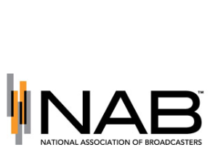
(By Reed Pence) Radio public affairs programming has always been driven by FCC demands. Decades ago, the Commission set quotas for the minimum number of hours stations spent each week on “non-entertainment” programming, so they obviously took it seriously. But interestingly, regulators did not require public affairs programming to be locally originated even then. That’s still true today.
In an age of lower spot revenue, high leverage, and deeply-slashed staffs working from home, a station’s public affairs requirement is usually far down the list of station priorities. Many clusters admit it’s not a job they relish. Yet it MUST be addressed. The FCC still expects stations to be good public trustees in return for the privilege of holding a license, even in the absence of strict quotas. The key to meeting these requirements economically lies in understanding what the FCC asks… and what it does not.
The main requirement today is a quarterly report, uploaded in a timely manner to the FCC’s online database, listing local problems and issues, and describing the station’s programming (usually public affairs) that has addressed these issues. Previously, a paper file was required to be available at studios. With each station’s quarterly report now available in the Online Public Inspection File (OPIF), public affairs is much more visible—if a station is derelict in its issues-based programming or filings, it’s readily apparent to the public and the FCC.
Some stations have read “local problems and issues” as a mandate to originate public affairs locally. However, as far as the FCC is concerned, there is no requirement that public affairs programs be locally sourced, only that they address the issues important to their community in the quarterly report.
It is important to note that the vast majority of local problems and issues listed by stations in FCC reports are actually not local in nature. They’re universal issues, such as “education” and “unemployment,” which can be easily addressed by a program NOT local in origination. Thousands of stations have discovered nationally syndicated public affairs as a result. Syndicated public affairs shows address these issues completely, and since they can secure the best guests, they often cover them more thoroughly than a local show ever could. Many stations use syndicated programs exclusively to satisfy compliancy issues, while others combine them with locally produced programs. The FCC is satisfied either way.
Syndicated public affairs programs offer stations an online quarterly report on the local problems and issues they’ve covered. Affiliates are able to simply drag-and-drop this report into their FCC filing. With FTP delivery of these shows, station automation can also be programmed to download for air every week automatically, creating truly hands off public affairs that still serves the public interest and satisfies the requirements of the FCC in every way. Their self-contained barter structure also means stations have no cash outlay.
So while FCC rules have always driven public affairs programming, those rules give savvy broadcasters a way to satisfy their public affairs obligations economically.
Reed Pence is Vice President of Programming for MediaTracks Communications and Executive Producer of its 28-year flagship public affairs program, Radio Health Journal, now heard on 650 stations nationally. He can be reached by e-mail at [email protected] or 847-299-9500






